Integrating AI into various facets of the entertainment industry has become increasingly prevalent as technology advances, opening up new avenues for creativity, personalization, and immersive experiences.
From movie recommendations and virtual reality gaming to AI-generated music and interactive storytelling, the impact of AI in entertainment is profound and multifaceted.
Key Takeaways: Artificial Intelligence in Entertainment
- Market Expansion: The AI in media and entertainment market was valued at $10.87 billion in 2021 and is expected to grow significantly due to advances in virtual creation and personalization.
- Enhanced User Experiences: AI is heavily used for personalizing content recommendations on platforms like Netflix and Spotify, improving user engagement and satisfaction.
- Creative Impact: AI is transforming creative processes in the industry, from scriptwriting and game design to digital art and music production, showcasing its potential to revolutionize traditional methods.
Let’s look into the key reasons why AI’s presence has become so indispensable in entertainment and how it continues to revolutionize our engagement with media and artistic expression.
AI in Entertainment Highlights
- The global market size for AI in media and entertainment reached $10.87 billion in 2021.
- More than 20 million active users are expected to utilize AI for augmented reality applications.
- Netflix’s AI-driven personalization and recommendations result in annual savings exceeding $1 billion for the company.
- Global generative AI in the music market was valued at $229 million in 2022.
Uses of AI in Entertainment
In 2021, the global market size for AI in media and entertainment reached $10.87 billion.
It is projected to experience a compound annual growth rate (CAGR) of 26.9% from 2022 to 2030. The market is primarily driven by the rising popularity of virtual creation in the media and entertainment industry, thanks to its capacity to produce high-definition graphics and real-time virtual worlds.
AI software is set to exert its influence across the entire entertainment supply chain, spanning various sectors such as film, TV, gaming, and music.
Creative roles, including scriptwriters, concept and VFX artists, set and costume designers, actors, composers, musicians, sound designers, and editors, will all be impacted significantly by this broad-reaching technological advancement.
Artificial intelligence (AI) has revolutionized the entertainment industry in numerous ways, enhancing the overall user experience and providing new creative possibilities. Here are some prominent uses of AI in entertainment.
Personalization of Content with AI
Entertainment companies use AI to deliver tailored services to consumers.
Users are offered personalized content based on their preferences while browsing a streaming platform. Moreover, AI ensures robustness for users with diverse internet speeds and bandwidths.
AI is employed in entertainment to deliver personalized content in various ways:
- Content recommendations
- Dynamic storytelling
- Personalized trailers
- Localization and subtitling
- Personalized advertising
- Enhanced viewing experience
- Audience insights
69% of consumers value personalization as long as it relies on data they have directly shared with a business.
In light of this, as entertainment companies address their audience’s demands, the significance of transparent and data-driven engagement tactics, exemplified by AI-driven personalization, can play a pivotal role in enhancing the success of enterprises within the entertainment sector.
Take, for instance, Netflix. The streaming giant is a master at incorporating AI technology to enhance the personalized experience for its subscribed consumers.
Its AI-driven system seamlessly executes various machine learning pipelines, providing tailored recommendations for shows, movies, and programs.
AI in Entertainment To Enhance Consumer Experience
Entertainment companies are progressively adopting chatbots for customer service and addressing common queries using natural language processing (NLP).
AI-driven chatbots and virtual assistants are pivotal in managing customer queries and providing assistance. For example, Ticketmaster employs a chatbot to guide users in locating and acquiring event tickets.
AI in Augmented and Virtual Reality (AR/VR)
In 2022, more than 20 million active users were expected to utilize AI for augmented reality applications.
As per extended reality industry experts, the application of AR and VR extends beyond just gaming within the entertainment sector. Cinema, events, shows, and art galleries can all leverage the advantages of AR and VR to enhance their offerings and captivate a larger audience.
A prevalent use of AI in VR/AR content creation involves crafting 3D models.
AI algorithms have the capacity to produce top-notch 3D models from 2D images or video material. This streamlined process offers time and cost savings compared to manual 3D model creation.
AI is employed in VR/AR content creation by implementing NLP algorithms.
These algorithms enable the interpretation and generation of human language, enhancing interactions and experiences within virtual and augmented reality environments. NLP-powered AI can facilitate voice commands, speech recognition, language-based interactions, and even the generation of narrative elements, contributing to more immersive and interactive VR/AR content.
AI in Movies & Television
Since the early 2000s, filmmakers have incorporated AI tools and machine learning in movie production.
Initially, AI’s primary application was in adding special effects and creating computer-generated images (CGI). However, as of 2023, AI has revolutionized filmmaking by providing countless state-of-the-art tools and techniques that enhance storytelling, streamline production, and unlock fresh creative opportunities.
Apart from CGI and special effects, AI in movies and television can perform the following tasks:
- Script production
- Pre-production
- Audience analysis
- Distribution
Use of AI in Video Streaming Services
According to a 2022 report by Nielsen, viewers spend more time watching content on video streaming services than they do on traditional cable TV.
As data indicates, Netflix emerged as the frontrunner among all major streaming companies, with 8% of viewers turning to the streaming platform for content.
Netflix’s global popularity can be attributed to its utilization of cutting-edge technologies, such as artificial intelligence and machine learning, which offer consumers more tailored and intuitive recommendations.
The company states, “As researchers, we innovate using machine learning in many areas where we prototype, design, implement, evaluate, and productionize models and algorithms through both offline experiments and online A/B testing.”
Netflix strongly emphasizes personalization using AI, with its recommendation system influencing around 80% of subscriber content choices.
Additionally, the company approximates that these algorithms contribute to an annual saving of $1 billion through enhanced customer retention strategies.
AI in Music
Global generative AI in the music market was valued at $229 million in 2022.
Projections indicate that from 2023 to 2032, this market will exhibit the highest compound annual growth rate (CAGR) of 28.6%, ultimately reaching $2.66 billion by 2032.
In 2016, SONY CSL Research Lab scientists produced the first AI-composed song, “Daddy’s Car,” using Flow Machines.
Flow Machines is a system designed to comprehend music styles and utilize a blend of distinctive techniques involving style transfer, optimization, and interaction. As an interactive tool, it can propose innovative melodic concepts for creative exploration.
A well-known music distribution company survey revealed that 59.5 % of artists employ AI for music projects.
Looking ahead, the survey also revealed that 77% of artists are inclined to employ AI tools for crafting album artwork, while 66% would consider them for the mixing and mastering of their music. Furthermore, 62% of respondents would opt for AI assistance in music production; however, a slightly lower percentage (47%) expressed willingness to utilize AI for their songwriting endeavors.
Use of AI in Music Streaming Services
Artificial intelligence is progressively vital in shaping the trajectory of music streaming. AI fundamentally transforms our methods to engage with and produce music, from tailored playlists to inventive music creation tools.
AI-powered music tools help platforms like Spotify categorize and arrange songs into various genres and collections.
Additionally, AI and machine learning models recommend and independently play songs based on individual preferences. This surge in global music consumption has consequently led to the integration of AI applications within the music industry and streaming platforms.
In August 2023, Spotify launched AI DJ for premium users.
Spotify’s AI DJ is an innovative feature that employs artificial intelligence to curate and deliver personalized playlists and music recommendations to users based on their listening preferences and habits.
DJ offers personalized playlists and music recommendations and includes concise English-language commentary on the songs and artists, making it feel like users have a personal DJ catering to their musical tastes.
AI in Audiobooks
AI has the potential to make audiobook production feasible for smaller authors and publishers who might find the time and cost constraints challenging to overcome.
For example, according to publishing experts, the costs of a five-hour book typically range from $2,500 to $3,750, roughly equal to $500 to $750 per hour of completed audiobook content.
Major Tech companies like Apple and Google have rolled out AI audiobook narration to cater to the requirements of authors and publishers.
Google Play’s platform can generate AI-driven audiobooks, provided the reader hold the rights to the audiobook and they opt for automated narration.
Apple’s Books service also offers audiobooks narrated by text-to-speech AI.
This bold move raised concerns about the industry’s potential decline of human narrators and sparked discussions about the future of audiobook narration.
Apple characterizes its latest product introduction as “digitally narrated audiobooks from an ebook using natural-sounding text-to-speech technology.”
The iTunes resource center outlines the requirements to publish text-to-speech AI-narrated audiobooks on Apple.
Apple emphasizes several noteworthy attributes of their AI-narrated audiobooks, showcasing the advantages of using this product.
- Voice selection
- Option to generate cover art
- Offers accessibility to a vast audience
- Easy production process
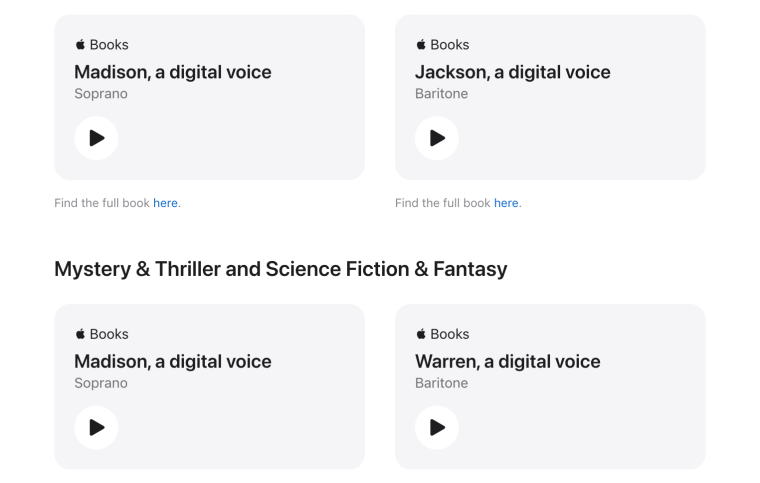
Benefits of AI in Entertainment
The benefits of using AI in media emphasize AI’s transformative role in shaping the future of entertainment across various mediums and formats. Whether it’s the use of AI in music or movies, audiobooks or advertising, AI has the ability to improve creativity, efficiency, and overall user experiences in the dynamic world of entertainment.
According to a Forbes Advisor survey, 64% of businesses believe that artificial intelligence will help increase their overall productivity.
For example, AI in entertainment can boost productivity through:
- Automated content creation
- Streamlined post-production
- Enhanced creativity
- Personalized recommendations
- Data analysis
- Efficient distribution
- Predictive insights
- Content restoration
- Realistic effects
- Global adaptation
- Interactive experiences
- Marketing optimization
- Task automation
- Accessibility enhancements
Top Beneficial AI Tools for the Entertainment Industry
Various AI tools developed by tech companies are being used in the entertainment industry for scriptwriting, natural language processing, personalization of user experiences, and more.
| AI System | Benefit |
| IBM Watson | Offers various tools for data analysis, language processing, and content creation, making it valuable for creating personalized user experiences and enhancing content quality. |
| Adobe Sensei | Used in Adobe Creative Cloud applications for tasks such as image and video analysis, automated tagging, and content recommendation. |
| Sony Flow Machines | Aids in music composition and songwriting, assisting musicians in generating new melodies and harmonies. |
| AIVA | Composes music, creates original compositions, and assists in generating soundtracks for movies and games. |
| Cinelytic | Analyzes film data to assist in project management, box office predictions, and content optimization. |
Who is Using AI in Entertainment?
Companies within the entertainment industry utilize AI extensively to enhance their offerings and user experiences.
Some notable examples include:
| Entertainment Company | Reason for AI Usage |
| Netflix | Netflix employs AI for personalized recommendations, dynamic thumbnails, content creation decisions, and production optimization. |
| Spotify | Spotify utilizes AI for personalized music recommendations, playlist curation, and enhancing user engagement. |
| Disney | Disney integrates AI into streaming services, virtual reality experiences, and content creation processes. |
| Amazon Prime Video | Amazon Prime Video employs AI for content recommendation, personalized user experiences, and optimizing streaming quality. |
| Warner Bros. | Warner Bros. uses AI for script analysis, predictive analytics, and marketing strategies. |
| Sony | Sony employs AI for music composition, generating songs, and enhancing sound quality. |
| Universal Music Group | UMG uses AI to create soundscapes and audience analytics. |
| Tencent | Tencent employs AI for content creation, virtual reality experiences, and interactive storytelling. |
Studios have the ability to automate content creation through the utilization of machine learning (ML) and AI algorithms.
These technologies facilitate the generation of video subtitles, character creation, audio production, natural language processing (NLP), and text analysis. AI speeds up content creation by saving time and reducing manual work for media and entertainment companies, increasing productivity and engagement with audiences.
AI in Entertainment for Content Creators and Marketers
Bloggers utilizing AI tools experience a decrease of approximately 30% in the time dedicated to crafting a blog post.
This indicates how artificial intelligence contributes to enhanced efficiency and productivity for content creators.
AI’s ability to quickly navigate through extensive volumes of data, encompassing audio and video, enables it to detect irregularities and avert potential breakdowns rapidly.
In 2023, 84% of bloggers and SEO professionals affirmed that AI and automation have influenced their SEO strategy.
- 48% resort to AI for market research.
- 32% use AI to learn how to do things.
- 22% Turn to AI to get inspiration.
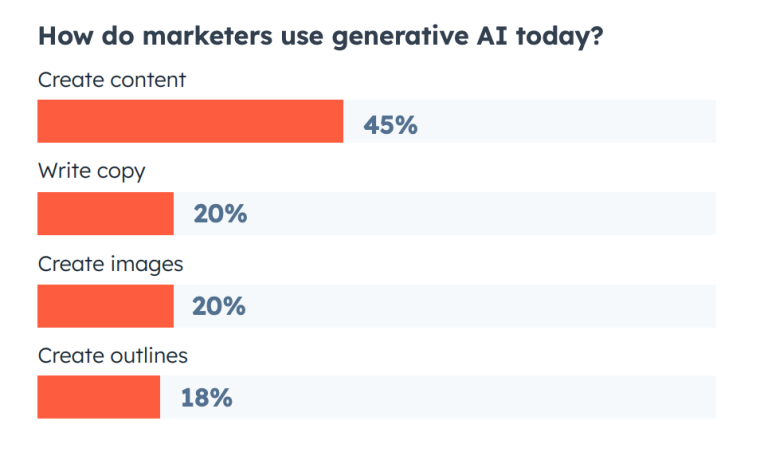
- To transform it into a more professional caption.
- To create social media ads to suit each platform.
- To brainstorm ideas.
- To quickly generate lots of quality captions
With a growing focus on automating content creation, the AI writing assistant software market is anticipated to reach $6.464 billion by 2030, growing at a CAGR of 26.94% from 2023 to 2030.
Meanwhile, the global AI video generator market is expected to increase from $411.5 million in 2022 to $1.082 billion in 2027, with a CAGR of 17.5%.
Building on this growing trend, Meta unveiled a new product that enables users to generate videos using AI technology.
The yet-to-be-released “Make-A-Video” studio will allow creators and artists to convert text prompts into high-quality video clips.
Public Perceptions of AI in Entertainment
A Forbes survey revealed that 45% of consumers support the integration of AI in movies.
Additionally, 55% of those surveyed approved of AI in social media, and 41% supported its use in music.
According to the IPSOS “Global Opinions and Expectations About AI” report, 77% of survey respondents agreed that AI is expected to enhance the entertainment sector.
The following findings stem from a 28-country survey conducted by IPSOS on its Global Advisor online platform.
27% of respondents globally anticipate that entertainment is the area most likely to undergo significant change for them and their families in the next 3-5 years due to the increased use of artificial intelligence.
Similarly, 24% of US respondents believed that entertainment would experience significant change for them and their families with the advancement of AI.
However, China exhibited the highest percentage, with nearly 50% of participants agreeing that entertainment is the area most likely to experience a significant transformation because of AI.
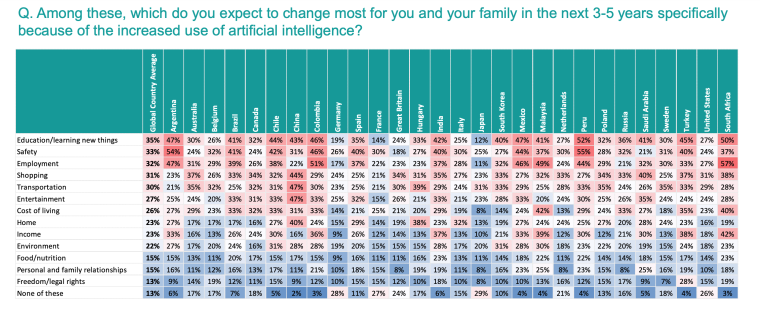
A study published by AI & Society found a significant link (p < 0.5) between people’s views of AI in entertainment and their real-life perspectives.
Those who considered AI’s portrayal in media believable were likelier to see AIs as potential emotional companions or robots, rather than just job replacements or surveillance tools.
AI’s Transformative Influence through Film and Television
Fictional stories in television and popular culture can shape people’s views on social groups and issues.
Based on discoveries made by the research team at The University of Texas at Austin, narratives in television often become the main source of information on certain topics.
For example, television is a primary way many Americans learn about healthcare. Entertainment can sway and influence viewers through relatable characters and engaging stories. This persuasion is achieved by creating relatable experiences. People who consume a lot of entertainment media can adopt these distorted narratives.
Movies and pop culture could shape how people see AI, possibly being their main source of understanding.
This can strongly affect how they view real AI. Current media often portrays AI in extreme scenarios, like AI fulfilling all human desires or harming humanity.
The University of Texas at Austin’s research team survey asked participants about the images or themes they link with entertainment media’s portrayal of artificial intelligence.
The following pictures received the lowest ratings for realism in portraying AI within entertainment media.
- Men in Black (53.2%)
- The Star Wars franchise (52.0%)
- The Matrix (51.3%)
 AI in Entertainment Controversies
AI in Entertainment Controversies
Integrating artificial intelligence into the entertainment industry has ignited a wave of controversies as the creative landscape undergoes a profound transformation at the hands of advanced technological capabilities. Controversies have emerged fueled by worries about the displacement of human creativity, potential infringements on intellectual property, and the blurred lines between human ingenuity and algorithmic innovation.
Generative AI in Motion Pictures
Generative AI can impact writers in movies and television by potentially influencing tasks such as story generation, screenwriting, and editing, which have traditionally been the domain of human writers.
In May 2023, the Writers Guild of America (WGA) initiated a strike due to various concerns and challenges arising in the film and television industry. SAG-AFTRA, the union for actors and performance artists in film/TV, also joined the strike in July 2023, partly in support of WGA and partly due to actors’ distinct issues with Hollywood studios.
Writers were troubled by the potential of text-generating AI like ChatGPT taking over story generation, screenwriting, and editing tasks, potentially impacting their credits and roles.
The WGA put forth the following terms to oversee the utilization of AI in movies and television.
- Regulate use of artificial intelligence on MBA-covered projects.
- AI can’t write or rewrite literary material.
- AI can’t be used as source material.
- MBA-covered material can’t be used to train AI.
Similarly, actors have been apprehensive that studios might use AI to create their appearances and voices without providing the customary compensation for their participation in films and TV shows.
Deepfake Misinformation
Deepfakes are manipulated forms of multimedia, typically a video or image, generated using AI to convincingly replace one person’s appearance or voice with another’s, often for deceptive or misleading purposes.
These creations can be remarkably realistic, blurring the line between genuine and fabricated content, therefore emerging as a controversial topic in the entertainment industry.
In a notable instance, retired actor Bruce Willis reportedly granted video production firm DeepCake permission to utilize deepfake technology for integrating his likeness into a series of Russian commercials.
However, in 2022, Willis’ agent addressed the deepfake issue and denied allegations concerning selling the actor’s facial image rights in a statement from The Hollywood Reporter.
The Future of Artificial Intelligence in Entertainment
AI in entertainment brings both benefits and controversies to the creative landscape. While concerns arise over deepfakes, bias, and potential job displacement, the transformative potential of AI-driven content creation, personalized experiences, and innovative storytelling cannot be overlooked.
As AI technologies evolve, the entertainment industry gains unprecedented tools to captivate audiences and optimize production processes. While navigating ethical and creative challenges is crucial, the advancements witnessed so far suggest that AI’s integration has the potential to impact and enhance our daily entertainment experiences positively.
FAQs
How is AI used in entertainment?
How is AI affecting the entertainment industry?
What is the future of AI in entertainment?
What is AI used for in movies?
Is AI going to replace actors?
Sources
- Grand View Research
- VIP Variety
- Google Cloud
- Twilio Segment
- Netflix
- Ticketmaster
- PR Newswire
- Alpha3D
- Intellect Data
- IBM
- Angana Datta
- The Guardian
- Nielsen
- Netflix
- Netflix Report
- Market US
- YouTube
- Flow Machines
- Ditto Music
- Knowledge Sourcing Intelligence
- Spotify
- Scribe Media
- Google Play
- Apple
- The Guardian
- iTunes
- Forbes
- IBM Watson
- Adobe Sensei
- Flow Machines
- AIVA
- Cinelytic
- Netflix
- Spotify
- Disney
- Amazon Prime Video
- Warner Bros.
- Sony
- Universal Music Group
- Rolling Stone
- Globant
- HubSpot
- Verified Market Research
- Markets and Markets
- Meta
- Make-A-Video
- Forbes
- IPSOS
- AI & Society
- The University of Texas at Austin
- WGA
- SAG-AFTRA
- Polygon
- The Guardian
- BBC
- The Hollywood Reporter

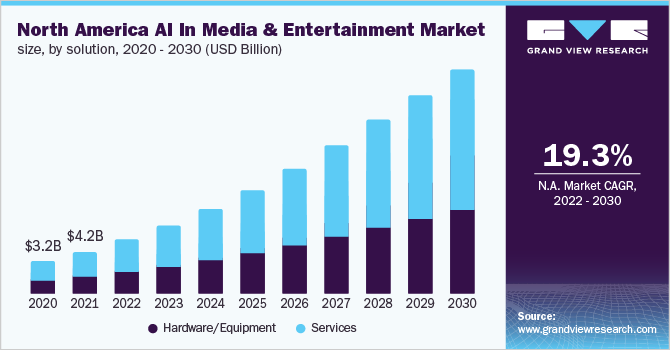
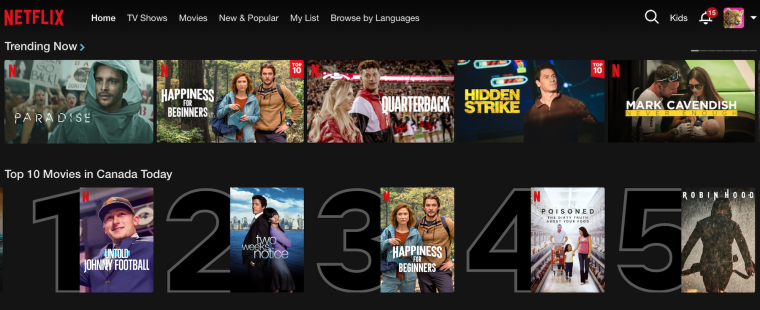
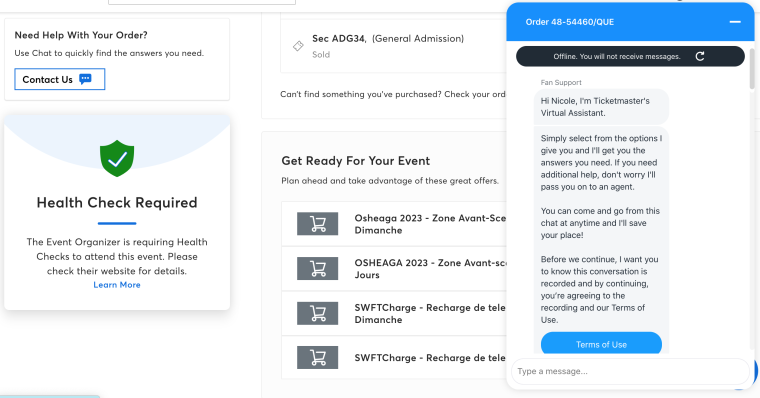
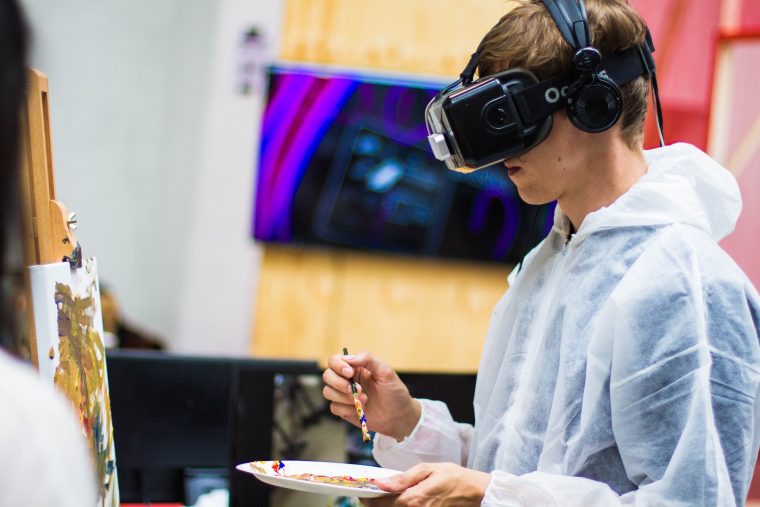
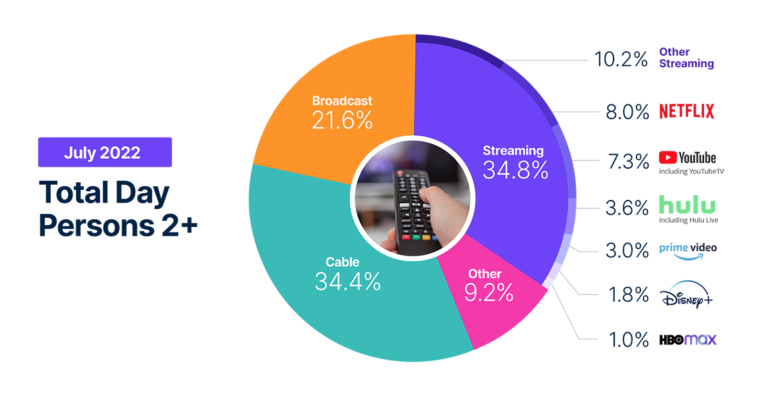
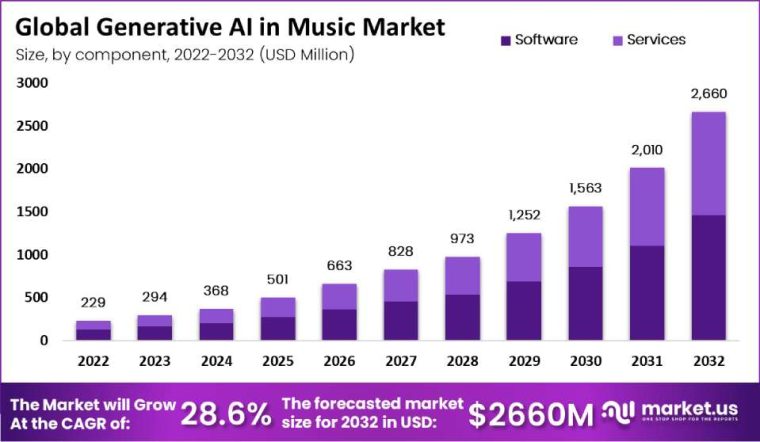
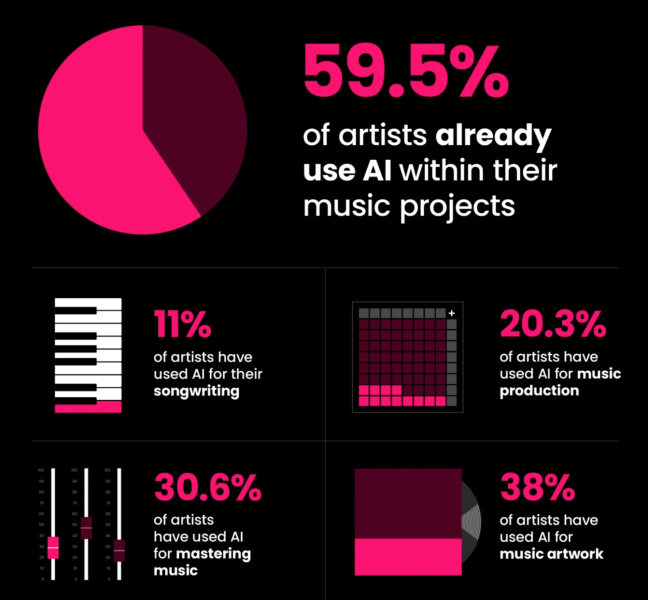
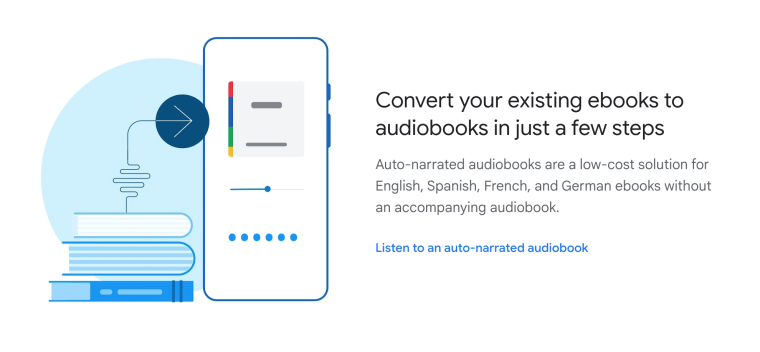
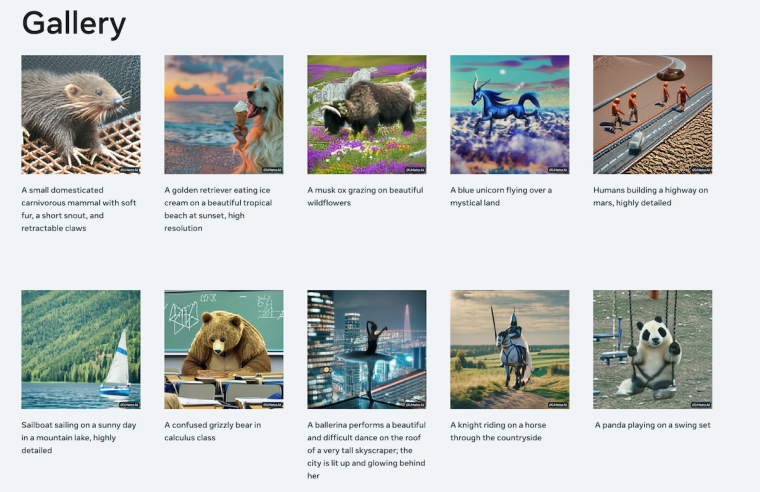
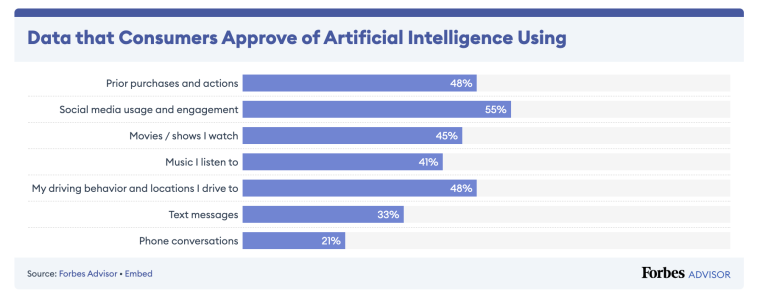
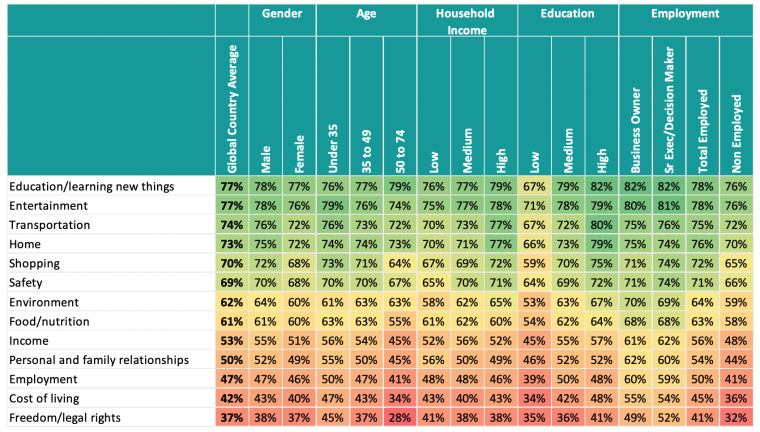
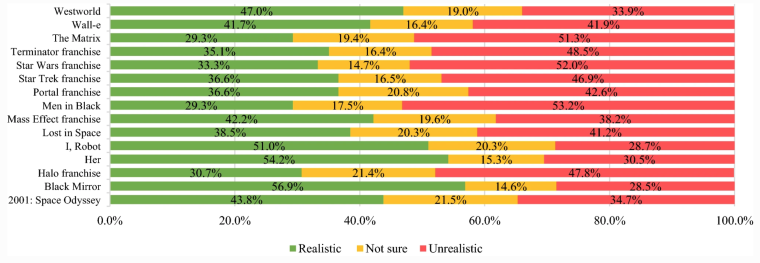 AI in Entertainment Controversies
AI in Entertainment Controversies